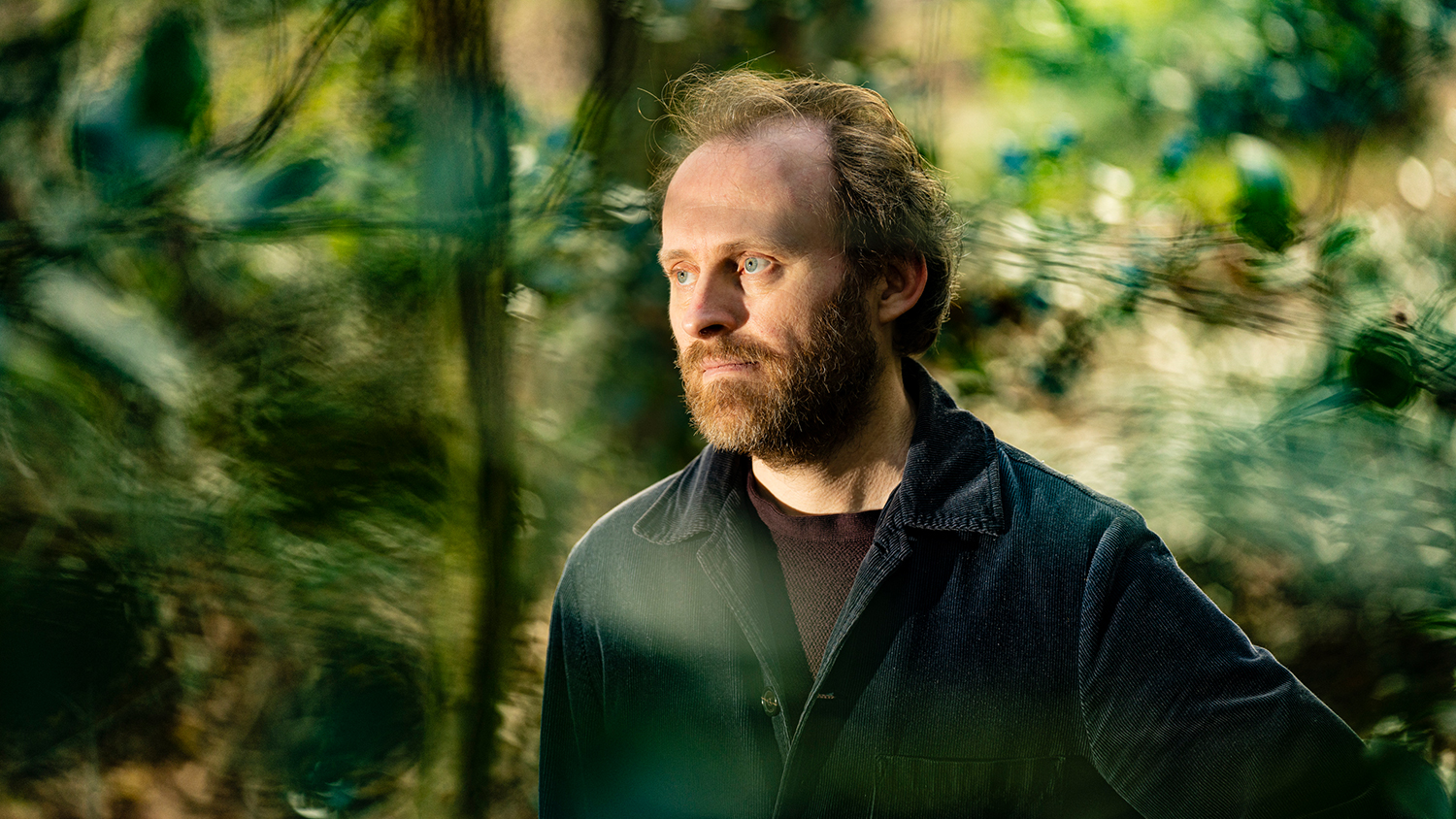Professor and jury member Buelens: ‘You become a better writer when you read a lot’

Fewer and fewer young Dutch people read famous authors of the local literature. Writers like Gerard Reve, Jan Wolkers, Renate Dorrestein, Arnon Grunberg, and Herman Kock, to name but a few, have been increasingly ignored by young audiences, according to numerous studies. In addition, the number of students choosing to study the Dutch Language at university level has dropped by half in the last ten years. VU university Amsterdam has even cancelled its entire Dutch programme. In Utrecht, the programme – which has only fifty first-year students – is stable for now, says Professor Geert Buelens. “In the Netherlands, we’ve got a peculiar approach to our own language and culture. It would be unthinkable for Germany to cut back on German studies, or that the Sorbonne would say: ‘French, that isn’t all that important.’”
As a researcher, Buelens delves into the exchange between literature and society. He himself is anything but an ‘ivory tower’ kind of scientist, having published poetry, books, essays, and columns, as well as regularly gracing the opinion pages of newspapers in both his native country, Belgium, and the Netherlands. This summer, Dutch newspaper De Volkskrant published a piece written by him and his colleague Els Stronks in which they worry about the reading and writing ability of young people. “This issue goes beyond the university. Sure, it’s about the future of literature, but also about a fundamental question: the future of our democracy.”
The future of our democracy? Can you please explain that?
“The fact that people are reading less literature is linked to a drop in Dutch people’s reading skills -- and people who can’t read well can barely get on in our society. In October, I read a column by Sheila Sitalsing – who, by the way, is the best columnist in the country, in my opinion! – in which she wrote that around 20 percent of the Dutch population gets into trouble with the law. That’s because the government rarely communicates on a personal level anymore. If you call governmental bodies, you get one of those automated tapes. The tax authorities send letters. But, if you don’t understand them, you’re already several steps behind. Sitalsing states that a large part of the current dissatisfaction in our society originates there. I think she’s completely right.”
What is causing Dutch people’s language skills to decrease?
“These days, teachers have to teach children so many things, in very thankless circumstances. School has become a care centre for kids with all kinds of psycho-social and cultural issues, which puts pressure on the core task – teaching children to read and write. Moreover, the competition in the entertainment and leisure markets has increased enormously. In short: people watch Netflix and read less. Don’t get me wrong, I’d be the last one to say that visual culture is a problem. I love watching series, too. But we do have to keep that competition in mind.”
Playing devil’s advocate here: young people do read a lot on their smartphones.
“Definitely, that’s true! They read on their smartphones, and they read subtitles. That’s great, because everything contributes to being well-read. But reading books – which requires reading with concentration, for a longer period – is quite different from reading a short message on your phone. International research has shown that children who read more fiction are also better able to read: they have a better understanding of the text, and therefore understand the subject matter more. Not surprising, of course.”

In what ways is reading a book different?
“There’s something very primal in stories. When I was seven or eight years old, the teacher would read at the end of the school day. It was always a thrilling story, we really wanted to know how it would continue. Fiction stimulates your imagination and lets you look at the world through other people’s eyes. That gives you insights that are hard to get through any other way: it makes truly feel what it’s like to be someone else, or experience something. You see more and more that, in societal discussions, people really dig their heels in in any given position. They’re unable to listen to other points of view, or simply acknowledge the merits of other ideas. Again, I’m not saying literature is better than film or television. I truly don’t think so. But it has its own power and value, which you can only experience if you’ve gotten in touch with it.”
Which is not happening. Is it because of overstimulation?
“Exactly. In order to find enjoyment in reading and writing, you need rest and space. You need rest and space to play with language, to experiment communicating with it in different ways. At the moment, we’ve got an educational system in which every single second needs to be filled. In final exams, pupils are never asked whether a text is exciting or makes the reader enthusiastic. Sure, there’s the mandatory reading list in secondary school. I’m from Belgium, so I haven’t experienced this myself, but I rarely feel as though this makes people enthusiastic.”
That list is often criticised for forcing teenagers to read certain types of books, which demotivates them from reading anything else. Do you agree with that?
“I haven’t entirely made up my mind about this. Some argue that, in maths, you’re not asked whether you can identify with pi. That’s true. On the other hand, things that are mandatory are often less attractive. You know, literature doesn’t have the same position in our culture as it used to. We can be sad about this, but I think it’s just something we need to acknowledge.”
Have you noticed this declining interest in literature amongst your own students as well?
“Well, no. The truly good, interested ones, they’re still good. I don’t feel as though that’s less than twenty years ago. We’re talking about the young people that don’t get to the Dutch study programme.”
Alongside your colleague Els Stronks, you started the project Taalbaas (Language Boss), which provides workshops to school children, taught by writers stuck at home because of the Corona crisis. Is that the way to get a broad group of people reading and writing again?
“Taalbaas’ main goal is to let young people experience that it can be fun to focus on a text. At the same time, we wanted to help out authors and other spoken word artists. That combination turned out to be successful. Writing is a good way to inspire young people to get to know language because they’re creating something themselves. Around a quarter of participants started the workshop thinking that they had a language delay, which they wanted to fix through Taalbaas. The trial was too short to really speak of success, but young people did show up.”
Speaking of writing: you’re a jury member for the UU campus columnist competition, organised by DUB. What advice would you give to participants?
“To link back to what I said before: you become a better writer if you read a lot. That holds true for journalists, for literary writers, for everyone really. So, to anyone who’s considering sending in a column, I’d say: read good columnists. As I’ve mentioned, I think Sheila Sitalsing is an exquisite example.”

What makes Sitalsing so good?
“She makes sure she’s informed, writes incredibly well, and she makes a point with urgency. Look, you never have to read a column, it shouldn’t feel like work. You start it and, before you know it, you’ve finished reading it. That’s because it’s really well-crafted. Besides, Sitalsing is sharp, and substantive.
For campus columnists, I think it would be great to choose a position as well. You know, opinions are very cheap, everyone’s always shouting whatever. If DUB publishes something, it should contribute to our knowledge or to the debate. You can for instance look at the meeting minutes: what was the University Council talking about? So you can use the facts as substantiation for your position. In the best case scenario, of course, because this is easier said than done.”
Lastly: as a jury member, what will you pay attention to?
“I will mainly look at whether a column is easy to read. Do I have to work for it, or will a text take me with it? There are texts for which you have to try hard to finish reading them, such as scientific articles. But a column isn’t like that, preferably. So that’s what I’ll look at: is it nice to read, and will it make me think?”
Photos: Ivar Pel
